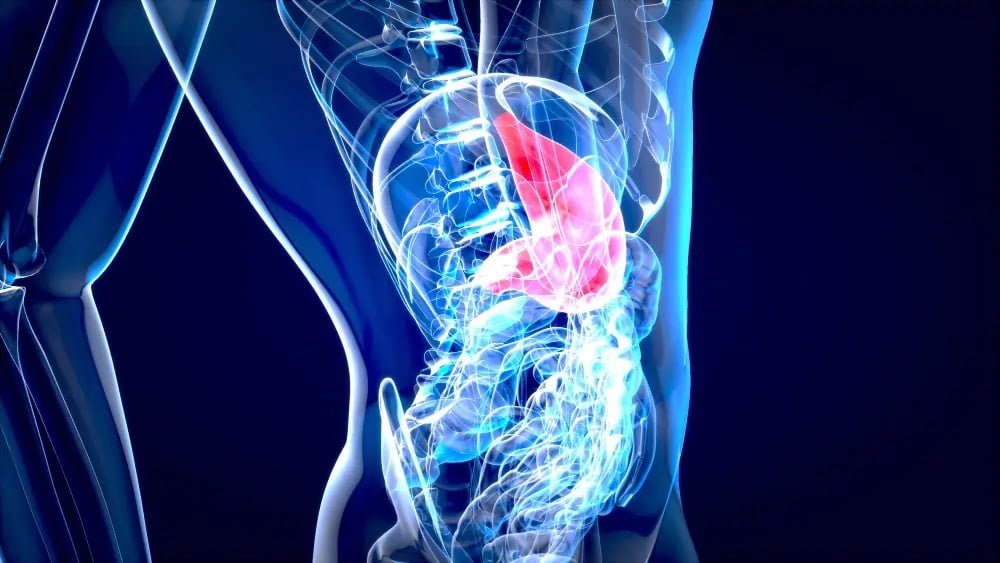Introduction
Heart disease is a leading cause of death worldwide. It can affect anyone, regardless of age, gender, or ethnicity. But the good news is that you can take steps to lower your risk of developing heart disease and improve your overall health. Here are seven tips to help you in preventing heart disease and keep your heart healthy.
1. Quit smoking or avoid tobacco products
Smoking is one of the most harmful habits for your heart. It damages the lining of your arteries, increases your blood pressure and heart rate, and reduces the oxygen in your blood. Smoking also increases the risk of blood clots, which can lead to heart attack or stroke. If you smoke, quitting is the best thing you can do for your heart. Even if you don’t smoke, avoid exposure to secondhand smoke, which can also harm your heart. There are many resources and programs available to help you quit smoking or tobacco use.
2. Eat a balanced and nutritious diet
What you eat can have a big impact on your heart health. A balanced and nutritious diet can help you lower your cholesterol, blood pressure, and blood sugar levels, which are all risk factors for heart disease. A heart-healthy diet includes many fruits, vegetables, whole grains, legumes, nuts, seeds, and lean proteins. It also limits saturated fats, trans fats, added sugars, and sodium. Aim for a variety of foods from each food group and watch your portion sizes.
3. Be physically active every day
Physical activity is another key factor in preventing heart disease. It helps you burn calories, maintain a healthy weight, strengthen your muscles, and improve your blood circulation. It also lowers your blood pressure, cholesterol, and blood sugar levels, and reduces stress and inflammation. Physical activity can also make you feel happier, more energetic, and more confident. The American Heart Association recommends at least 150 minutes of moderate-intensity aerobic activity or 75 minutes of vigorous-intensity aerobic activity per week for adults. You can also do some strength training exercises at least twice a week. You don’t have to do all your exercise at once. You can break it up into shorter sessions
throughout the day. For example, you can walk for 10 minutes after each meal, or do some jumping jacks during a TV commercial break. Find an activity that you enjoy and make it a part of your daily routine.
4. Maintain a healthy weight
Being overweight or obese can increase your risk of heart disease. Excess weight can put extra strain on your heart and blood vessels, and lead to high blood pressure, high cholesterol, and diabetes. Losing weight can help you lower your risk and improve your health. To lose weight, you need to create a calorie deficit, which means you burn more calories than you consume. You can do this by eating fewer calories and being more active. You can use a [BMI calculator] to find out your body mass index, which is a measure of your weight relative to your height. A healthy BMI range is between 18.5 and 24.9. If your BMI is higher than that, you may need to lose some weight. Talk to your doctor or a dietitian about a safe and effective weight loss plan for you.
5. Manage your stress levels
Stress can affect your heart health in many ways. It can raise your blood pressure and heart rate, and trigger unhealthy behaviors such as smoking, drinking, overeating, or skipping exercise. Chronic stress can also weaken your immune system and increase inflammation, which can damage your arteries and increase your risk of heart disease. Therefore, it is important to manage your stress levels and cope with it in healthy ways. Some strategies to reduce stress are:
– Practicing relaxation techniques, such as deep breathing, meditation, yoga, or tai chi.
– Engaging in hobbies or activities that make you happy, such as reading, listening to music, gardening, or playing with your pet.
– Seeking social support from your family, friends, or a professional counselor.
– Avoiding or limiting caffeine, alcohol, and nicotine, which can worsen stress.
– Getting enough sleep, which can help you feel more rested and calm.
6. Monitor your blood pressure, cholesterol, and blood sugar levels
High blood pressure, high cholesterol, and high blood sugar levels are all major risk factors for heart disease. They can damage your arteries and make them narrow and hard, reducing blood flow to your heart and other organs. This can lead to heart attack, stroke, or other complications. To prevent this, you need to monitor your blood pressure, cholesterol, and blood sugar levels regularly and keep them within the normal range. You can check your blood pressure at home with a blood pressure monitor, or at a pharmacy, clinic, or doctor’s office. You can check your cholesterol and blood sugar levels with a blood test, which your doctor can order for you. The ideal levels for most adults are:
– Blood pressure: below 120/80 mm Hg
– Total cholesterol: below 200 mg/dL
– LDL cholesterol (bad cholesterol): below 100 mg/dL
– HDL cholesterol (good cholesterol): above 60 mg/dL
– Triglycerides: below 150 mg/dL
– Fasting blood sugar: below 100 mg/dL
If your levels are higher than these, you may need to make some lifestyle changes or take some medications to lower them. Follow your doctor’s advice and take your medications as prescribed.
7. See your doctor regularly and follow their recommendations
The last but not the least tip for preventing heart disease is to see your doctor regularly and follow their recommendations. Your doctor can assess your risk of heart disease, perform some tests, and prescribe some treatments if needed. Your doctor can also advise you on how to improve your lifestyle and manage your conditions. Seeing your doctor regularly can help you detect any problems early and prevent them from getting worse. It can also help you stay on track with your goals and monitor your progress. Make sure you see your doctor at least once a year, or
more often if you have any symptoms or concerns.
Conclusion: 7 Must-Know Tips for Preventing Heart Disease
Heart disease is a serious and common health problem, but it can be prevented with some simple and effective tips. By quitting smoking, eating a balanced and nutritious diet, being physically active every day, maintaining a healthy weight, managing your stress levels, monitoring your blood pressure, cholesterol, and blood sugar levels, and seeing your doctor regularly, you can lower your risk of heart disease and improve your quality of life. Start today and take charge of your heart health. Your heart will thank you for it.
FAQs
Q: What is heart disease and what are its symptoms?
A: Heart disease is a term that covers various conditions that affect the heart and blood vessels, such as coronary artery disease, heart attack, stroke, heart failure, arrhythmia, and congenital heart defects. Some common symptoms of heart disease are chest pain, shortness of breath, palpitations, dizziness, fainting, swelling in the legs, ankles, or feet, and fatigue.
Q: What are the risk factors for heart disease and how can I know my risk level?
A: Some risk factors for heart disease are age, gender, family history, ethnicity, smoking, high blood pressure, high cholesterol, diabetes, obesity, physical inactivity, stress, and poor diet. You can know your risk level by seeing your doctor and having some tests done, such as blood pressure, cholesterol, and blood sugar tests. Your doctor can also use a risk calculator to estimate your chances of developing heart disease in the next 10 years.
Q: How can quitting smoking help prevent heart disease?
A: Quitting smoking can help prevent heart disease by reducing the damage to your arteries, lowering your blood pressure and heart rate, increasing the oxygen in your blood, and decreasing the risk of blood clots. Quitting smoking can also improve your lung function, taste, smell, and appearance. Quitting smoking can lower your risk of heart disease by 50% within one year and by 90% within 15 years.
Q: What are some examples of heart-healthy foods and what are some foods to avoid?
A: Some examples of heart-healthy foods are fruits, vegetables, whole grains, legumes, nuts, seeds, and lean proteins, such as fish, poultry, eggs, and soy. These foods provide fiber, antioxidants, omega-3 fatty acids, and other nutrients that can lower your cholesterol, blood pressure, and blood sugar levels, and prevent inflammation and oxidative stress. Some foods to avoid are saturated fats, trans fats, added sugars, and sodium, which can raise your cholesterol, blood
pressure, and blood sugar levels, and cause plaque buildup and narrowing of your arteries. Some sources of these foods are red meat, butter, cheese, cream, pastries, cakes, cookies, candies, sodas, juices, and processed foods, such as chips, crackers, pizza, and fast food.
Q: How much physical activity do I need to prevent heart disease and what are some examples of physical activities?
A: You need at least 150 minutes of moderate-intensity aerobic activity or 75 minutes of vigorous-intensity aerobic activity per week to prevent heart disease. You can also do some strength training exercises at least twice a week to build your muscles and bones. Some examples of moderate-intensity aerobic activities are brisk walking, cycling, swimming, dancing, gardening, or playing tennis. Some vigorous-intensity aerobic activities include jogging, running, hiking, skipping, jumping rope, or playing soccer. You can also mix and match different activities to suit your preferences and abilities.
Q: How to stop a heart attack in 30 seconds?
If you suspect you’re having a heart attack, act quickly to improve your chances of survival. Here’s what you can do:
- Call 911 or Emergency Medical Services: If others are around, ask them to call an ambulance. Emergency medical services (EMS) are trained to provide rapid care for heart attacks.
- Take aspirin: If you’re still conscious, chew one uncoated 325-milligram aspirin. Aspirin helps slow blood clotting and minimize clot size during a heart attack.
- Unlock the door: Make sure paramedics can access your location.
- Rest while waiting: Sit or lie down and wait for help to arrive.
Remember, it’s crucial to seek professional medical assistance promptly.











 Afrikaans
Afrikaans Albanian
Albanian Amharic
Amharic Arabic
Arabic Armenian
Armenian Azerbaijani
Azerbaijani Basque
Basque Belarusian
Belarusian Bengali
Bengali Bosnian
Bosnian Bulgarian
Bulgarian Catalan
Catalan Cebuano
Cebuano Chichewa
Chichewa Chinese (Simplified)
Chinese (Simplified) Chinese (Traditional)
Chinese (Traditional) Corsican
Corsican Croatian
Croatian Czech
Czech Danish
Danish Dutch
Dutch English
English Esperanto
Esperanto Estonian
Estonian Filipino
Filipino Finnish
Finnish French
French Frisian
Frisian Galician
Galician Georgian
Georgian German
German Greek
Greek Gujarati
Gujarati Haitian Creole
Haitian Creole Hausa
Hausa Hawaiian
Hawaiian Hebrew
Hebrew Hindi
Hindi Hmong
Hmong Hungarian
Hungarian Icelandic
Icelandic Igbo
Igbo Indonesian
Indonesian Irish
Irish Italian
Italian Japanese
Japanese Javanese
Javanese Kannada
Kannada Kazakh
Kazakh Khmer
Khmer Korean
Korean Kurdish (Kurmanji)
Kurdish (Kurmanji) Kyrgyz
Kyrgyz Lao
Lao Latin
Latin Latvian
Latvian Lithuanian
Lithuanian Luxembourgish
Luxembourgish Macedonian
Macedonian Malagasy
Malagasy Malay
Malay Malayalam
Malayalam Maltese
Maltese Maori
Maori Marathi
Marathi Mongolian
Mongolian Myanmar (Burmese)
Myanmar (Burmese) Nepali
Nepali Norwegian
Norwegian Pashto
Pashto Persian
Persian Polish
Polish Portuguese
Portuguese Punjabi
Punjabi Romanian
Romanian Russian
Russian Samoan
Samoan Scottish Gaelic
Scottish Gaelic Serbian
Serbian Sesotho
Sesotho Shona
Shona Sindhi
Sindhi Sinhala
Sinhala Slovak
Slovak Slovenian
Slovenian Somali
Somali Spanish
Spanish Sundanese
Sundanese Swahili
Swahili Swedish
Swedish Tajik
Tajik Tamil
Tamil Telugu
Telugu Thai
Thai Turkish
Turkish Ukrainian
Ukrainian Urdu
Urdu Uzbek
Uzbek Vietnamese
Vietnamese Welsh
Welsh Xhosa
Xhosa Yiddish
Yiddish Yoruba
Yoruba Zulu
Zulu